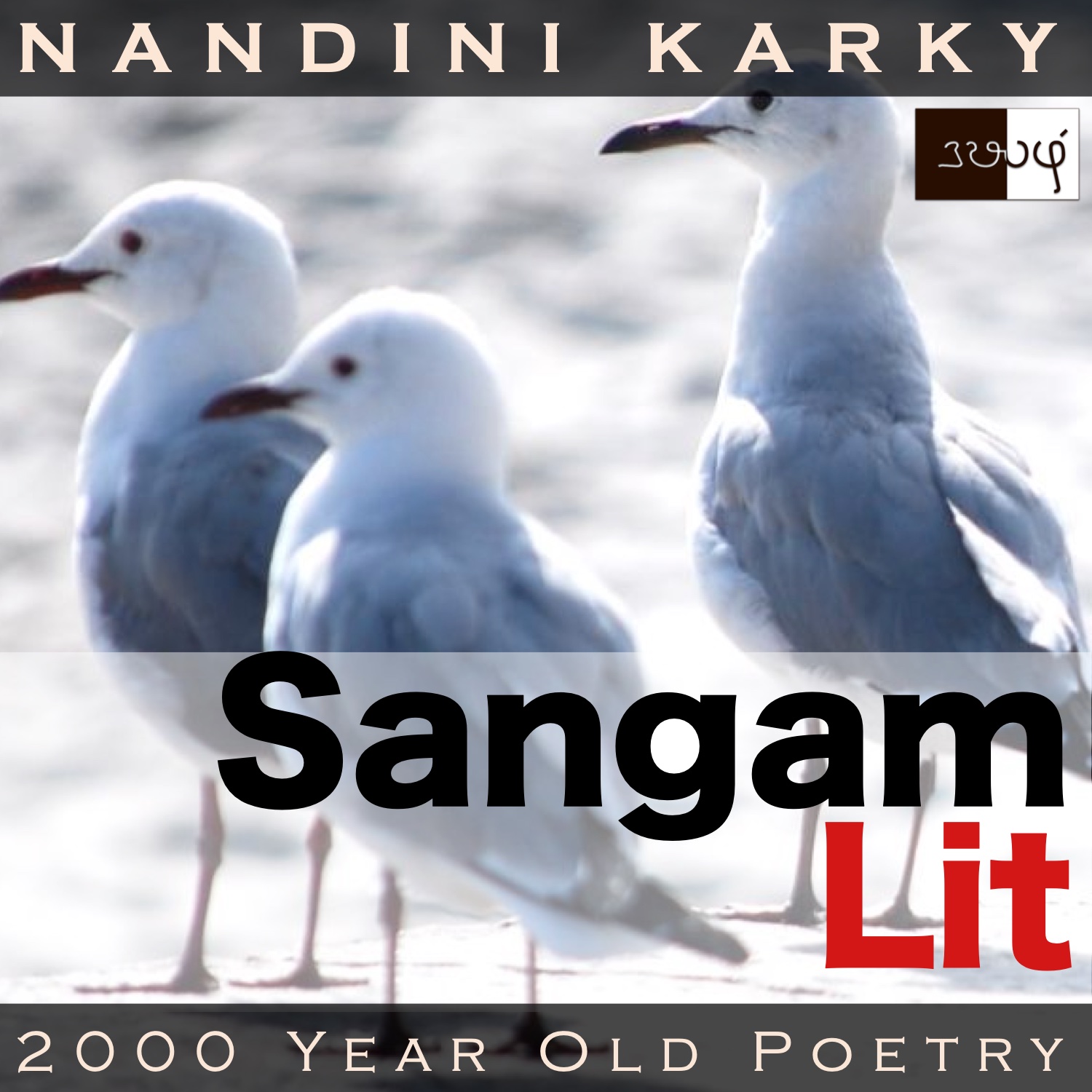Podcast: Play in new window | Download
Subscribe: Apple Podcasts | Spotify | Amazon Music | Android | iHeartRadio | Email | TuneIn | RSS | More

In this episode, we learn of the precarious situation a lady finds herself in, and of her subtle note of hope, as depicted in Sangam Literary work, Kurunthogai 334, penned by Ilampoothanaar. The verse is situated in the coastal regions of ‘Neythal’ and speaks in the voice of the lady to the confidante, in response to the friend’s question as to whether the lady could bear with the man’s parting.
சிறு வெண் காக்கைச் செவ் வாய்ப் பெருந்தோடு
எறி திரைத் திவலை ஈர்ம் புறம் நனைப்ப,
பனி புலந்து உறையும் பல் பூங் கானல்
இரு நீர்ச் சேர்ப்பன் நீப்பின், ஒரு நம்
இன் உயிர் அல்லது, பிறிது ஒன்று
எவனோ தோழி!-நாம் இழப்பதுவே?
‘What else is there’ is the dejected question herein. The opening words focus on the real world in ‘சிறு வெண் காக்கைச் செவ் வாய்ப் பெருந்தோடு’ meaning ‘huge flocks of little white sea gulls with red mouths’. Moisture spreads in the air with the words ‘எறி திரைத் திவலை’ meaning ‘the droplet spray of soaring waves’. ‘பல் பூங் கானல் இரு நீர்ச் சேர்ப்பன்’ meaning ‘the groves filled with many different flowers near the seas of the lord’ establishes the setting and refers to the protagonist by mentioning the landscape of his domain. The core question we talked about echoes in the words ‘பிறிது ஒன்று எவனோ’ meaning ‘could there be anything else’. Ending with the words ‘நாம் இழப்பதுவே’ meaning ‘for us to lose’, the verse welcomes us to listen with empathy.
What could that last resort about to be lost? The context reveals that the man and lady were leading a love relationship when the man decided to part with the lady so as to seek wealth for their wedding. Conveying the man’s intention to the lady, the confidante asks her if the lady could bear with this parting. To her friend, the lady says, “The small white gull with a red beak, disliking the cold caused by the spray of heaving waves that moistens its wet back, along with its flock, flies away and rests in the many-flowered orchard near the seas of the lord. If he were to part, what else would be there to be lost, other than my sweet life, O friend?” With these words, the lady declares that her very life is in danger if the man were to part away, and at the same time, hopes that the man would not leave her in such a state.
Delving into the lady’s words, at the core, we find two elements – her description of the man’s land and her question to the confidante. To describe the man’s land, the lady seeks the help of the sea gull, and after narrating its features vividly, she moves on to the bird’s actions when the waves splash water on it. The lady says, at this time, disliking the cold on its feathers, the bird, along with its flock, flies to the many flowered grove of the lord’s shores. After describing his land thus, the lady concludes with a question to her friend, asking what else was there to be lost by the lady other than her life, if the man were to part away.
Through that, the lady expresses the deep angst she would feel if the man were to leave her, even if it’s for her sake that the man is leaving. In that image of a gull avoiding the discomfort of its situation amidst the waves and flying to the warmth of the flowering trees, the lady conceals the hope that the man too would remove her from such a distress and find another way to take her to a safe place of togetherness. In so many verses, we see how the confidante and the lady are plotting so that the man gives up the temporary pleasure of trysting and instead, goes towards a permanent union. Now, when he’s just taking steps towards that, the lady is blocking his path with her angst. Did they have other alternatives then? What is the neat solution for this dilemma in the lady’s life? What seems as a complicated puzzle to the lady may seem a simple matter of accepting a person’s parting, to us. Likewise, perhaps, we should use the future’s eyes to see and solve our own seemingly unsolvable quandaries today!




Share your thoughts...